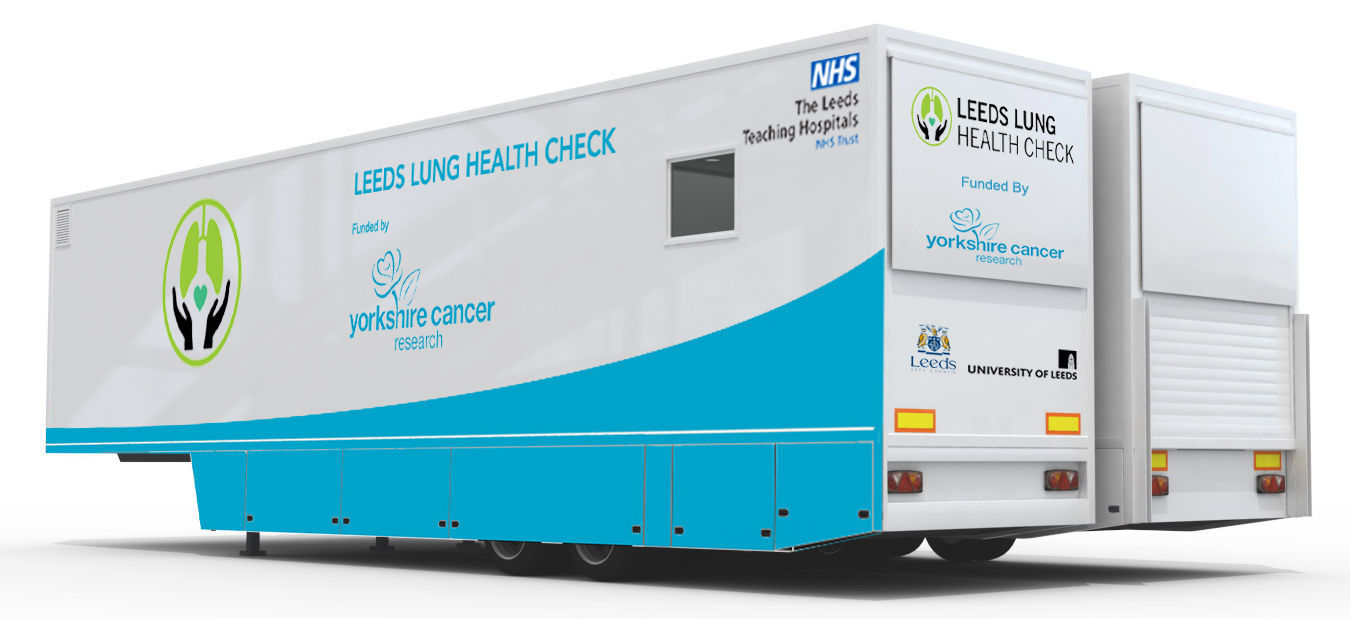
Blog written by Rhian Gabe, Reader in Clinical Trials at Hull York Medical School. Rhian is the statistician for the Yorkshire Lung Screening Trial (YLST)
Although there is not, as yet, a Lung cancer screening programme in the UK, there is now good randomized evidence from Europe and the US that low dose CT (CAT scan) screening reduces lung cancer mortality. The Dutch-Belgian NELSON trial recently presented results at IASLC World Conference on Lung Cancer in Toronto, reporting a 26% reduction in men and a larger reduction in the smaller subset of women. This exciting news confirms the positive results previously demonstrated in the US National Lung Screening Trials (NLST), which, in 2011, reported a 20% reduction in lung cancer mortality in those invited to CT as compared to chest X-ray screening.
While this evidence demonstrates that Lung CT screening can save lives, before adoption in the UK, policy makers will not only have to make the decision to implement screening but consider the cost-effectiveness in the UK setting, how to encourage those most at risk to attend, optimal risk criteria, screen frequency, nodule management and incorporation of smoking cessation advice in those wishing to receive it. Fortunately, researchers in the UK have already been trying to address these questions. The UK Lung Screening trial (UKLS), a randomised pilot study, has published baseline findings with encouraging numbers of screen-detected cancers and associated cost effectiveness. In addition, there have been 4 implementation studies including the Liverpool Healthy Lung Project (LHLP), the Nottingham Lung Health MOT Pilot, the Manchester Lung Cancer Early Diagnosis service, and the Lung Screen Uptake Trial (LSUT) in London, each of these being associated with the ACE programme (Accelerating, Coordinating and Evaluating innovations to bring about earlier cancer diagnosis). The UK studies were not designed to provide results on lung cancer mortality, rather, the aim was to see if those at high risk can be reached, leading to promising rates of lung cancers detection, clinically beneficial stage distribution, incorporation of smoking cessation advice and cost-effectiveness. In addition, the Yorkshire Lung Screening Trial (YLST) which is funded by Yorkshire Cancer Research, builds on this work and is due to start screening in mobile vans in community settings in early November.

I recently attended a workshop in Toronto, a precursor to the IASLC World Conference on Lung Cancer to present results from the UK implementation studies and to introduce our plans for the Yorkshire Trial. Strict instructions arrived the week before the meeting: presentations should be brief – a good idea to facilitate time for discussion. I considered using one slide with “Seems like it works”, perhaps a bit oversimplified, so after much scrutiny of the latest available results and with caveats about variation in details of study conduct (available in the ACE report) and ongoing work, I reported:
- Across the 4 implementation studies at least 25,000 invitations to a Lung Health Check (LHC) have been sent out. LHC involves a questionnaire about breathing and about potential symptoms of lung disease followed by a breathing test (spirometry) to calculate the individual’s risk of having lung cancer. High-risk individuals are referred for CT screening.
- About 8500 LHCs have been performed during which risk assessment for CT screening took place, and from this we observe:
- LHC uptake rates: 25-50% (the range reflecting variation in the population invited, i.e. the denominator)
- Identified at high risk: 42-56%
- High risk individuals attending CT: 86-97%
During the prevalence rounds among those attending CT screening 2-4% were found to have lung cancer of which 77% had a favourable stage (i.e. I/II) which is in contrast to an average of only 22% in the UK population. It is estimated that the cost per QALY is £10-20K, which is cost-effective by UK standards. UKLS also reports similar rates of cancers diagnosed and stage, and better cost-effectiveness: £8466 per QALY based on a single screen.
A key finding of the UK studies is the high proportion of earlier stage (stage I/II) cancers being detected. The stage distribution of lung cancer in the Liverpool study indicated a potential future reduction in mortality compared to that expected from the general population of around 22%. It also estimated one death prevented per 257 CT screens.
It is reassuring that uptake of LHCs and proportion high risk and therefore eligible for a CT screen fit with anticipated measures for YLST recruitment. The highest rates of uptake being observed in the implementation studies on which YLST bases its invitation materials. YLST will provide large scale evaluation by inviting over 31,000 people for a LHC telephone risk assessment and offers low dose CT screening on mobile vans for those at high risk. Follow up will be through linkage to the hospital data, cancer and death registries.
An additional area of work will be how best to translate early co-detection of other conditions such as COPD and heart disease into health benefits for patients. The US are ahead in this respect, having already started to implement screening programmes (albeit currently only 2-3% of the eligible population being covered) and we heard in the Toronto conference how patients who may not have been diagnosed with lung cancer, but have COPD, or coronary artery calcifications, are having these findings from CT screens discussed, and where appropriate, opening up the opportunity for personalised smoking cessation advice. While we know that incorporation of smoking cessation advice is feasible as this was integral to UKLS and the ACE studies, a new screen–specific (personalised) intervention will be trialed within a nested study, called YESS, in YLST.
The future could now be looking brighter for Low Dose CT screening in the UK, and for people currently diagnosed with lung cancer.
Update (April 2019) – NHS to roll-out lung cancer scanning trucks
The views expressed are those of the author. Posting of the blog does not signify that the Cancer Prevention Group endorse those views or opinions.

Leave a Reply